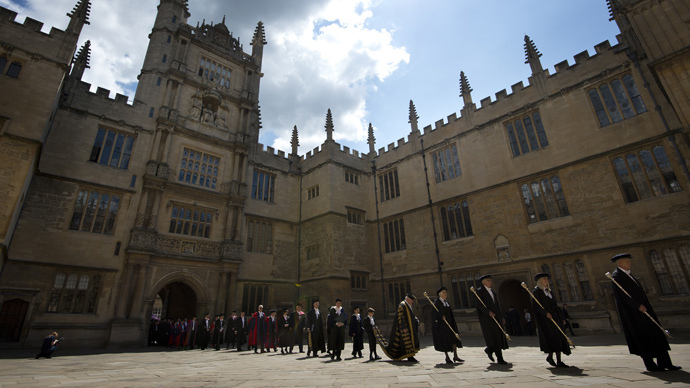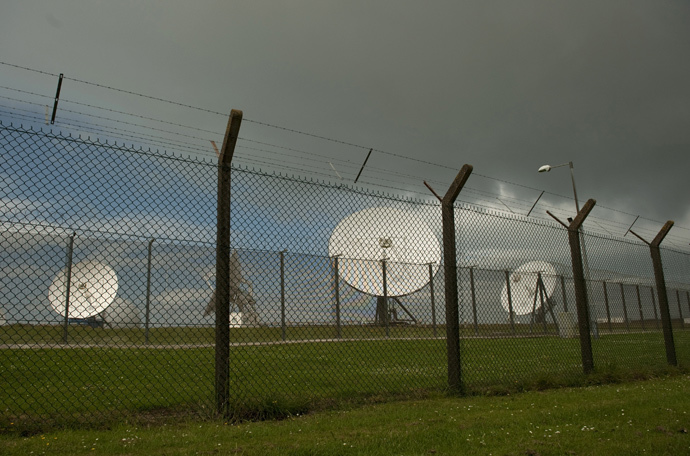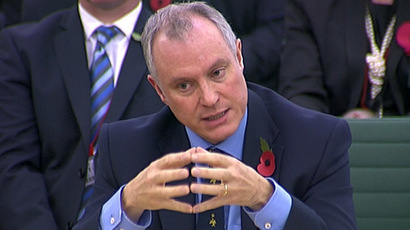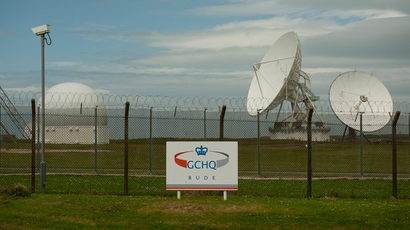UK’s spy agency approves six universities to teach next generation of cyber spies

GCHQ, the UK government surveillance agency, has given its stamp of approval to six universities to train cyber spies and experts hoping to combat rising levels of cybercrime.
The list of accredited universities now offering GCHQ-approved programers in cyber security includes Lancaster University and University of Oxford.
Master’s courses have also been accredited at the Royal Holloway, University of London, University of Surrey, Edinburgh Napier University and Cranfield University.
GCHQ offered Full certified status and Provisional certified status. The first is for Master's degrees currently running whose students completed their degree in academic year 2012 to 2013, and the second for degrees which started academic year 2013, or are due to start this fall.
The certification comes as a part of the government’s £860m ($1.5 bln) cyber security strategy.
As the GCHQ said in a statement the certification of six Master’s degrees in Cyber Security marks a “significant step in the development of the UK’s knowledge, skills and capability in all fields of Cyber Security”.
Since the National Cyber Security Strategy said that education was crucial for the development of Cyber Security skills, earlier in the year, UK universities were invited to submit their Cyber Security Master’s degrees for certification.
Universities were tasked to provide “well-defined and appropriate content, delivered to the highest standard.”

GCHQ worked out the criteria with assistance from Professor Fred Piper, the founding director of The Information Security Group at Royal Holloway, University of London – the first to offer cyber-security Master's degree back in 1992. The surveillance agency also worked with Professor Steven Furnell, of Plymouth University, also helped GCHQ to develop assessment criteria for the Master's degrees.
“Cyber Security is a crucial part of this government's long term plan for the British economy. We want to make the UK one of the safest places in the world to do business online,” Minister for the Cabinet Office Francis Maude said as he announced the certification of six Master’s degrees on Friday.
Maude stressed that cooperation between the GCHQ and “private sector and academia” will help to “counter threats” and “to ensure together we are stronger and more aware."
“This is a great step forward in developing the cyber specialist of tomorrow," Mark Hughes, President of BT Security said commenting on the news. "At BT we are acutely aware of the impact of the UK cyber skills gap and recruiting the right people with the right knowledge and skills is a big deal for us. As a leading Internet service provider we want to employ the very best.”
Welcoming the news, Nigel Smart, Professor of Cryptology, University of Bristol said he expects “the number of UK universities achieving certification of their Master’s degrees to increase.”
A further call for Master’s certification will take place in late 2014, GCHQ said in the statement. Next time the Master’s certification will be extended to degrees which are focused on critical areas of Cyber Security such as digital forensics.
As it was earlier revealed, new GCHQ certificates will be valid for five years before having to be renewed.














